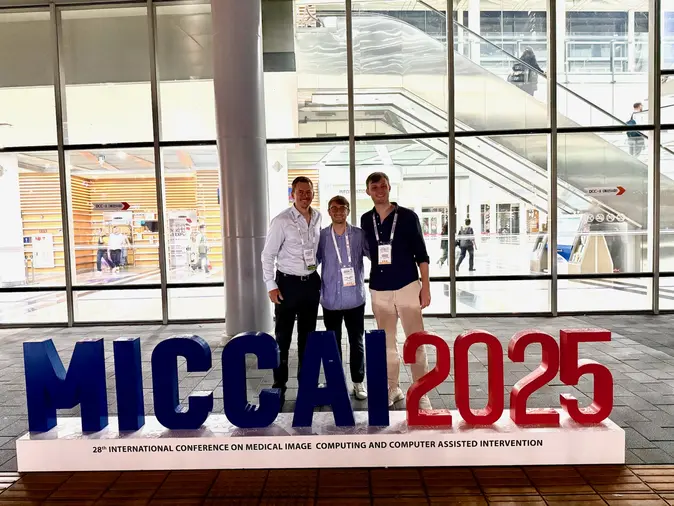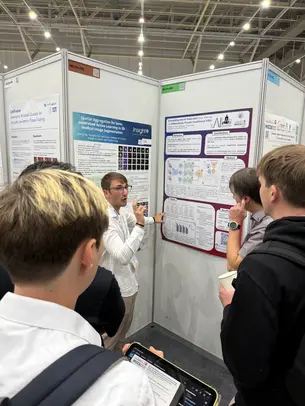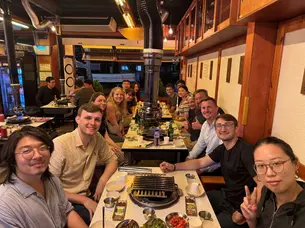Spotlight on Our Contribution
Our PhD candidate Francesco Di Salvo represented xAILab Bamberg with a poster presentation of the paper “Embedding-Based Federated Data Sharing via Differentially Private Conditional VAEs”, co-authored with Hanh Huyen My Nguyen and Prof. Dr. Christian Ledig.
In this work, the team tackles one of the central challenges in modern medical AI: how to enable collaborative model training across institutions while preserving patient privacy. Traditional Federated Learning (FL) approaches, while privacy-conscious, often face high communication costs and limited adaptability. To overcome these barriers, Francesco and colleagues proposed a Differentially Private Conditional Variational Autoencoder (DP-CVAE) framework that allows institutions to share privacy-preserving data embeddings instead of raw images or models.
By leveraging foundation model embeddings as compact, informative representations of medical images, the method drastically reduces redundancy and computation. The DP-CVAE collaboratively learns a global, privacy-aware data distribution, enabling downstream tasks to be trained efficiently and securely. Compared to standard FL classifiers, the approach demonstrated improved scalability and privacy guarantees while generating higher-fidelity embeddings with five times fewer parameters than existing DP generative models.
The poster drew strong interest from attendees, sparking discussions around privacy-preserving data sharing, generative modeling, and the evolving role of foundation models in medical imaging.
You can explore the full paper here.
Recognizing Excellence in Peer Review
We are also thrilled to celebrate our PhD student Sebastian Doerrich, who was recognized among the top 15 reviewers of MICCAI 2025 with an Outstanding Reviewer Award.
This distinction highlights Sebastian’s commitment to maintaining the high scientific standards that define the MICCAI community and reflects our lab’s broader dedication to fostering open, rigorous, and fair research practices.
Science, Collaboration, and Korean Hospitality
Beyond the poster sessions, Daejeon offered a perfect setting for scientific exchange and cultural discovery. Our team enjoyed reconnecting with colleagues and friends from around the world, discussing research during the day and sharing ideas (and local cuisine!) over dinner in the evenings. The conference venue, surrounded by Daejeon’s futuristic skyline and vibrant university district, captured the spirit of MICCAI’s 2025 themes: technological innovation with a human touch.
MICCAI 2025 also underscored the growing importance of clinical translation and regional collaboration, featuring four visionary keynotes that bridged neuroscience, medical robotics, responsible AI, and clinical radiology. These talks, together with over 100 workshops, challenges, and tutorials, made this year’s conference a true celebration of diversity in both ideas and people.
Looking Ahead
Our participation at MICCAI 2025 reaffirmed xAILab Bamberg’s mission to advance trustworthy, privacy-aware AI for medical imaging. From Francesco’s innovative contribution to Sebastian’s recognition as an outstanding reviewer, our lab continues to push the boundaries of what’s possible when technical excellence meets ethical responsibility.
We return from Daejeon inspired by the science, the culture, and the community and look forward to continuing our collaborative journey toward more inclusive and secure medical AI.



